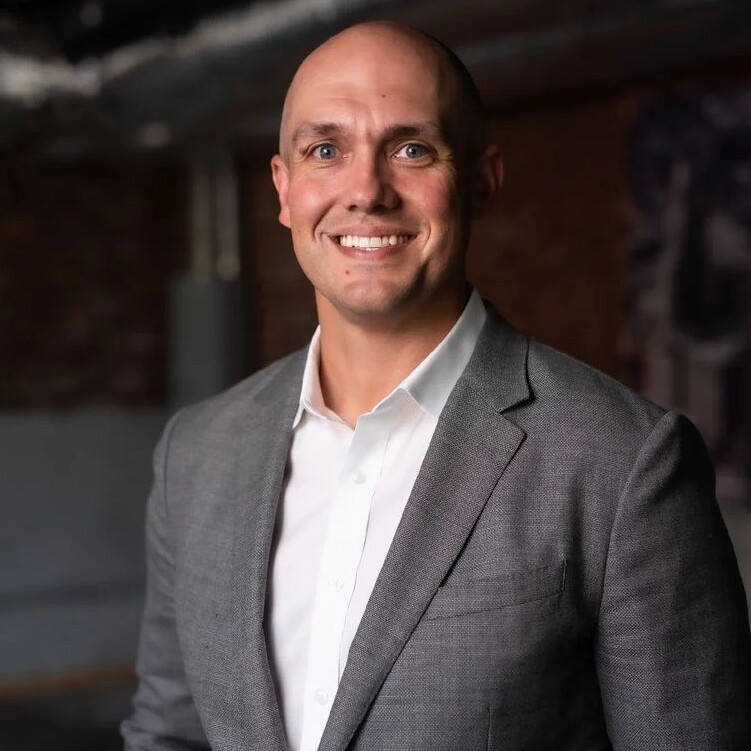
President & Chief Commercial Officer, Wellinks
Geoff is President and Chief Commercial Officer at Wellinks, a virtual-first care company on a mission to help the 25 million Americans with chronic obstructive pulmonary disease (COPD) live fully and breathe freely. Through its personalized approach to care, Wellinks partners with health plans and value-based care delivery organizations to help members live well with COPD and break the cycle of frequent hospitalizations. Wellinks has been named a Connecticut “Innovator of the Month” by Senator Chris Murphy and was recently awarded the Next Gen Telemedicine Rising Star Award from the UCSF Digital Health Hub Foundation. Over the course of Geoff’s six-year tenure with Wellinks, he has raised over $40 million in venture capital funding and has built partnerships with leading health systems, including Hartford HealthCare in Connecticut, and national payers.
A 2022 Hartford Business Journal “40 under Forty” honoree, Geoff is a founding member of the Digital Medicine Society’s IMPACT initiative for virtual-first care, an Entrepreneur-in-Residence with Connecticut Innovations, and serves on the regional Board of Directors of the American Lung Association and the Executive Committee for the New Haven Chapter of the American Heart Association. He resides in West Hartford with his family and is a proud and active alumnus of UConn. Go Huskies!
Geoff Matous is doing things WerthWatching:
- President and chief commercial officer of Wellinks, a healthcare company offering the first-ever integrated, virtual COPD management solution.
- Guided the company’s evolution from its original medical device focus and helped develop its current vision in digital health.
- Geoff is a startup mentor through CTNext and UConn, advising local businesses on topics like company formation and commercialization.
What sparked your interest in the medical device and technology field?
It all started with a referral from a friend who had recently entered the field, a few years after graduation. I’ve now been in healthcare for over 15 years, and I can’t see myself doing anything else professionally. The combination of the quality of the people you work with, the intensity of the problems you’re partnering to solve and the impact that innovation in this field can have on the patient and our world -- it's incredibly rewarding.
You are part of a group of generous alumni matching donations made during the upcoming UConn Gives. Why did you choose to support The Werth Institute, and how does its mission resonate with your experiences and values?
I’m in awe, frankly, of what David and the entire team at the Werth Institute have built and are growing. The common knock on Connecticut, and specifically entrepreneurship or innovation in this state, is a tendency to think too small. Everything that The Werth Institute stands for is larger-than-life but what makes it special is how practical and hands-on the work is. You have this program meeting students where they are and giving them resources and access to mentorship, all wrapped around this incredible education at a Top 10 public university in UConn. Having spent some time with many of the students coming through The Werth Institute over the past few years, I know we’re in a position to leave that knock behind.
I hope to be in a position someday where I can be philanthropic to the University at a larger scale. In the meantime, I’m looking for opportunities to sort of “lever up” donations by trying to be helpful to students, being an advocate for the University, and just staying connected as an alum. The Werth Institute and its mission provides a unique venue for that.
Why is giving back important to you, both personally and professionally?
I’m lucky and grateful to have a number of mentors in my life, and I can’t imagine where I’d be without them. Giving back to the community, and to the University in particular, is about honoring them and giving others access to the same opportunities that people have given to me.
How has your entrepreneurial mindset influenced your approach to leadership?
I think I’ve built a strong appreciation and empathy for what it takes to exist in an entrepreneurial environment. I see my leadership role as keeping the heads and hearts of the team in shape to take on the challenges and opportunities that come our way. I’m always working towards being able to consistently do what former Ford Motor Company CEO Alan Mulally put as—lead with a compelling vision, comprehensive strategy and relentless execution plan.
As a startup mentor working with companies through CTNext and UConn, what advice do you share with young entrepreneurs?
At least recently, I’ve been talking a lot about two things.
First, find comfort in the questions. We’re wired to seek answers to everything. I’m not particularly good at this yet myself, but I think it’s important to spend more time in the unknown as an entrepreneur and to really break down big questions into sets of smaller questions before we try to construct the perfect answer. There’s a lot of value in those next levels of thought. If we immediately try to put a nice clean answer around the first question
The second is around entrepreneurship through acquisition, or ETA. Being a startup or zero-to-one entrepreneur isn’t the only path and there might be unique opportunities in a more buy-then-build type approach.
Can you share an instance where you took a risk? Did it pay off? If not, what lesson did you learn from the experience?
I suppose it was a bit of a risk to move from the big companies and relative safety of the medical device sales career I was in for nearly a decade and make the leap to a startup. Though it didn’t feel like it. I’m happy with that decision, it’s opened up a world of opportunity and the journey has been gratifying.
What’s your favorite UConn memory and how has your connection to the university influenced your professional journey?
Last fall we lost a great man and teacher with the passing of Charles (Pete) Peterson, who founded and built up the Program for Sales Leadership which has since become the Professional Sales Leadership minor in the School of Business. Pete had such a positive impact on the lives and careers of everyone who went through his program. I’ll always cherish the fond memories of Pete, his courses, his friendship, and how intensely he cared about helping people be their best.
Which business tool or resource do you recommend to others, and why?
If you’re an entrepreneur in Connecticut, I recommend building a relationship with Connecticut Innovations.
What’s your go-to karaoke song?
Mr. Big “To Be with You”
What are you passionate about outside of work?
Spending time with my family, rooting on the UConn Huskies and playing golf.
